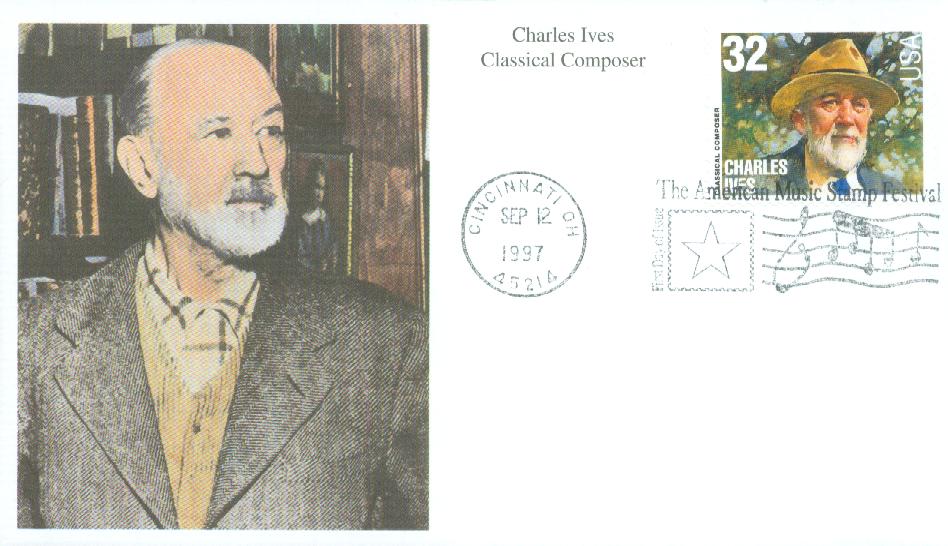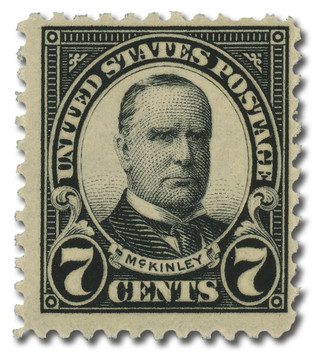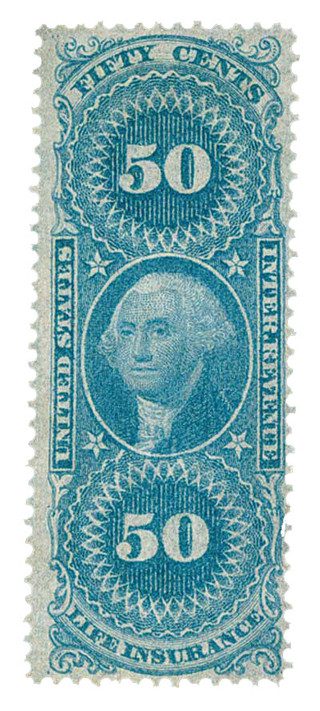Composer Charles Edward Ives was born on October 20, 1874, in Danbury, Connecticut.
Ives’s father had been a bandleader during the Civil War. His father also directed bands, choirs, and orchestras in their hometown, in addition to teaching music theory. Ives and his brother learned music at a young age from their father, giving Ives an early understanding of harmony and counterpoint. His father encouraged experimentation, an attitude that would pervade his music.
Ives began working as the church organist when he was 14. As a teenager, he wrote hymns and songs for church services. He also composed Variations on “America” for a Fourth of July event. Even by today’s standards, it is considered a challenging piece, but Ives considered it “as much fun as playing baseball.”
Ives moved to New Haven, Connecticut in 1893, where he attended the Hopkins School and was captain of the baseball team. He then went to Yale, where he continued to compose music, including a campaign song for William McKinley. Ives was also a talented athlete, playing on the school’s football team. His love of sports inspired a few songs. Ives composed his Symphony No. 1 for his senior thesis.
After graduating in 1898, Ives embarked on a career in life insurance. He worked in that field for many years, composing music as a hobby. He was well regarded in his field, laying the foundation for modern estate planning. His book, Life Insurance with Relation to Inheritance Tax, was well received.
Although Ives composed his most important works from 1896 to 1921 and had pieces performed as early as 1925, he was not widely known until 1939. Many of his works are unconventional, with key and time signatures and bar lines omitted. One of Ives’s four symphonies, Symphony No. 3, won the 1947 Pulitzer Prize.
Many of Ives’s compositions were based on American folk and popular music, such as ragtime, military marches, patriotic songs, and revival hymns. He also put themes such as baseball to music – one of his 27 piano pieces is entitled Some Southpaw Pitching. Some of his music is reminiscent of the circus parades and revival meetings he heard while growing up in Danbury, Connecticut.


In 1927, Ives suddenly found himself unable to write any new music. Even after he retired from his insurance job, he was unable to write, though he spent his time tweaking previous works and arranging performances. He died on May 19, 1954.
Ives never earned his living through music. He composed during his leisure time, and privately published his creations. Though his music was largely unknown during his lifetime, he was later regarded as the leading composer of 20th-century art music. He is considered an “American original.”
Click here to listen to some of Ives’s music.
| FREE printable This Day in History album pages Download a PDF of today’s article. Get a binder or other supplies to create your This Day in History album. |
Discover what else happened on This Day in History.






It is very colorful music with the timpani being featured.